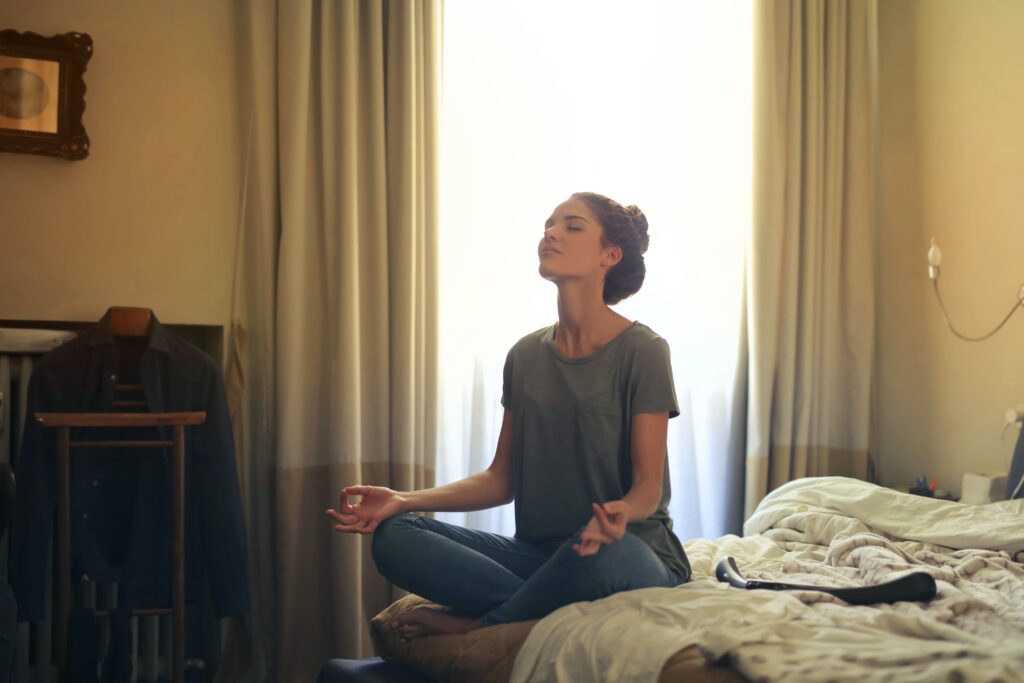Why meditation can help you sleep better
If sleep eludes you when it’s time to go to bed, perhaps it’s time to take up meditation.

Many of us have experienced difficulty falling asleep when it’s time to go to bed. Most of the time, stress, anxiety and tension are to blame. They either make it hard to fall asleep or make existing sleep problems worse.
However, research shows that meditation before bedtime may aid sleep and increase overall calmness.
What is meditation?
Meditation is a practice where people use a set of techniques to encourage a heightened state of awareness and focused attention along with an emotionally calm and stable state. Meditation has been practised in numerous religious traditions and cultures throughout the world for thousands of years. There are different types of meditation including concentrative meditation and mindfulness meditation.
Meditation doesn’t have to be a navel-gazing exercise that takes hours of your evening. Even 5-10 minutes a day can be beneficial.
How does meditation improve sleep?
Meditation causes physiological changes that influence specific processes in your body which promote sleep. The benefits of meditation for sleep include:
- improved relaxation response
- improved control of the automatic nervous system which reduces how easily you wake
- increased levels of melatonin, the hormone responsible for sleep
- increased levels of serotonin, a hormone that acts as a precursor for melatonin
- reduced heart rate
- lower blood pressure
- increased activity in the parts of the brain that control sleep.
How to meditate
Meditation can be tricky if you’re not experienced with it. In the beginning, many people find it hard to switch off and find their mind wandering. If this happens, don’t worry. Meditation takes practice. Simple steps to get started include:
- Find a quiet place to sit or lie down.
- Close your eyes and breathe slowly, focusing on your breathing. You should inhale and exhale deeply.
- If you notice your mind wandering, relax, let go of the thought, and re-focus on your breathing.
Tips for successful meditation
Start slow and don’t have high expectations. It can take time to get the hang of quietening your mind. Start with 3-5 minutes and understand that you will need to practice this habit.
Meditate at the same time each day. If you want the benefits associated with good sleep, try it 30 minutes before bedtime.
Make sure you adopt a comfy position (sitting or laying down), and that your clothes are comfy as well. Popping on your PJs before meditation may help.
Focus on your feelings and sensations and don’t suppress them.
Reset yourself by focusing on your breathing if you notice you begin to overthink.
Pair with a good bedtime routine
Adding meditation to your bedtime routine may help you improve your sleep. Other things you can do to help establish a good bedtime routine include:
- going to bed at the same time each day
- taking time to unwind before bed
- eating and drinking light
- avoiding electronics before bed
- doing other relaxing things like reading or listening to music
- taking a bath.
Of course, the best bedtime routine in the world won’t help you sleep well if your mattress isn’t up to scratch. Fortunately, we can help there. BedGuard has a range of supportive, waterproof mattresses made from the highest-quality materials, to help you get a good nights’ sleep.
Ask our friendly staff in-store or browse online today.





